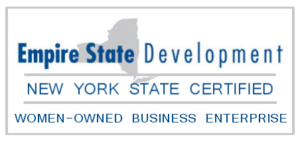When we talk about surveillance, we’re usually talking about investigators staking out a claimant, taking videos, trying to catch them doing something outside their restrictions. It’s an incredibly useful and important tool in our arsenal, especially when it comes to fraud. But what about social media?
We live in a time when nearly everybody has at least one social media account, and most of us have several: Facebook, Instagram, TikTok, Twitter, the list goes on and grows by the day! I was once involved in a case where we realized the claimant was working as a clown (no, I’m not kidding!) and although she tried to say it was therapeutic, her social media was full of posts advertising her various gigs and discussing her rates. On another case, a claimant didn’t disclose that he was selling guns. His social media was clean – but his wife’s Facebook posts were full of videos of the claimant and his family at gun shows, the claimant sitting behind a sales booth and demonstrating various guns for sale, sales advertisements, and directions to call the claimant’s cell phone to arrange appointments. The judge was less than amused.
We also live in an era when a lot of people may have side gigs which don’t involve working at an actual physical location. This matters because a claimant who isn’t observed leaving her house may still be engaging in fraudulent activities online, and we may be able to find that out by searching through her social media. We’ve seen claimants trying to build up a client base for everything from scented melts to homemade items on Etsy. In one case, the claimant posted about her new carpet-cleaning business on Facebook, trying to drum up interest. We went digging and were able to turn up further posts about a business the claimant started, which led us to a business license in her name. Our investigators then set up a sting operation and were able to film the claimant engaging in work activities. We raised fraud. The claimant tried to say that she hadn’t disclosed the business because she didn’t think of it as her own business because she had “opened the business for her family” and her brother did the actual cleaning work, but she admitted that the business license was in her name, she had bought tickets to go out of state for training, she had purchased the products and rented storage space to store them, the commercial vehicle was in her name, and she was the only person who could access the business bank accounts. The judge implemented a lifetime ban. So check social media – you never know what you’ll find!

